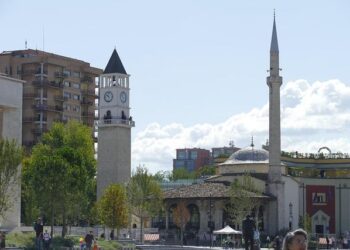Leaders and officials from the Western Balkans convened in London this week to address pressing challenges surrounding migration and the management of return hubs. The summit focused on enhancing cooperation between regional governments and international partners to ensure more efficient handling of migrant flows, improve humanitarian conditions, and strengthen border controls. As migration remains a critical issue for both the region and Europe at large, discussions highlighted practical measures aimed at balancing security concerns with human rights obligations. This gathering marks a significant step in coordinating efforts to manage migration in the Western Balkans amid evolving geopolitical dynamics.
Western Balkans Summit Focuses on Strengthening Migration Management and Regional Cooperation
Leaders and experts gathered in London to address the growing challenges related to migration management within the Western Balkans. The summit placed a strong emphasis on enhancing cooperation among regional states to develop effective migration and return hubs, aiming to streamline the process for both migrants and governing bodies. Discussions highlighted the urgent need to balance humanitarian considerations with border security, ensuring that migration flows are managed efficiently while upholding human rights standards. The collaborative approach seeks to foster trust and create a unified framework for migration governance across the region.
Key outcomes included commitments to:
- Improve information sharing between countries to track migratory movements more accurately.
- Establish joint operational centers to coordinate returns and protect vulnerable groups.
- Enhance capacity-building initiatives for border agencies and local authorities.
- Strengthen partnerships with EU institutions and international organizations for technical support and funding.
These measures are expected to increase regional resilience against irregular migration while promoting safe and dignified returns, with a focus on respect for fundamental rights and local community integration.
Experts Call for Improved Return Hubs to Enhance Migrant Reintegration and Border Security
At the recent London summit, leading migration specialists emphasized the urgent need to bolster the capacity and efficiency of return hubs across the Western Balkans. These centers serve as critical points for processing migrants who choose or are required to return to their home countries. Experts argued that modernizing these facilities with better resources, streamlined procedures, and comprehensive support services would not only improve the dignity and safety of migrants but also facilitate their successful reintegration into local communities. Enhanced cooperation between regional governments, international organizations, and civil society was highlighted as a cornerstone for creating sustainable frameworks.
Key priorities for the upgraded return hubs include:
- Employment programs tailored to individual skills and local market needs
- Psychosocial support to address trauma and promote mental well-being
- Legal assistance to ensure transparent procedures and safeguard migrants’ rights
- Border security integration aligning return protocols with broader migration management strategies
| Aspect | Current Status | Proposed Improvement |
|---|---|---|
| Facility Infrastructure | Limited and overcrowded | Modernized, capacity expansion |
| Reintegration Support | Fragmented services | Comprehensive, coordinated programs |
| Stakeholder Collaboration | Inconsistent engagement | Formalized multi-sector partnerships |
Recommendations Emphasize Sustainable Policies and Multilateral Partnerships Ahead of EU Integration
The recent discussions among Western Balkans leaders have underscored the critical need for policies rooted in sustainability and cooperation. Experts highlight that tackling migration challenges requires not only national resilience but also a cohesive regional approach, adhering to EU standards as integration efforts advance. Priorities include strengthening legal frameworks, enhancing border management, and promoting socio-economic development to reduce push factors driving irregular migration.
Key policy recommendations presented:
- Establishing joint migration monitoring mechanisms
- Investing in community-based integration initiatives
- Enhancing capacity-building programs for return hubs
- Aligning border procedures with EU human rights protocols
| Focus Area | Proposed Action | Expected Impact |
|---|---|---|
| Policy Harmonization | Standardize migration and asylum laws | Facilitates smoother EU accession process |
| Multilateral Cooperation | Strengthen partnerships with EU and UN agencies | Improved resource sharing & capacity |
| Return Hubs Management | Implement transparent and humane procedures | Protect migrants’ rights & expedite return |
The Way Forward
As discussions at the London summit conclude, the focus on managing migration and establishing effective return hubs in the Western Balkans remains a critical priority for regional and international stakeholders. The outcomes underscore the necessity of enhanced cooperation, sustainable policies, and shared responsibility to address migration challenges while respecting human rights. As countries in the region navigate these complex issues, ongoing dialogue and coordinated actions will be essential to foster stability and support both migrants and host communities alike.
















